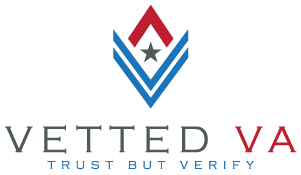Vetted VA LIVE – 5 Tips for Getting Your VA Offer Accepted
Buying a home with a VA loan can feel like an uphill battle in today’s market — especially when sellers see multiple offers on every listing. Many veterans face unnecessary resistance, not because of their qualifications, but because of misinformation about VA loans.
The good news? Knowledge, preparation, and a solid team can help your offer rise to the top. Here are five proven tips from Vetted VA professionals to help you get your VA offer accepted.
Understanding Why VA Offers Get Overlooked
Some sellers and even real estate agents mistakenly think VA loans are “harder” or “slower” than conventional loans. Most of these fears come from outdated information.
One of the biggest misconceptions is that VA appraisals are stricter and will kill a deal with repair demands. In truth, the VA’s Minimum Property Requirements (MPRs) are focused on safety and livability — things like ensuring there’s no exposed wiring, leaking plumbing, or structural issues (see VA Handbook 26-7, Chapter 12).
“Most repairs that come up are small,” said Vetted VA professional Michelle Dugan. “It’s about protecting the veteran and making sure the home is safe — not making it harder to buy.”
Tip #1: Know the Facts About VA Appraisals and Property Standards
VA appraisals are unique, but not difficult. In fact, they’re often more predictable.
-
VA appraisers follow published fee schedules and timelines managed by the Department of Veterans Affairs — not third-party management companies.
-
MPRs only cover essential health, safety, and structural items, not cosmetic issues.
As Vic Malone, a Vetted VA lender in Colorado, put it:
“If you look at the MPRs, they’re not onerous. They just make sure the house is sound. Most listings already meet those standards.”
Tip #2: Use the Tidewater and Reconsideration of Value Processes to Your Advantage
If a VA appraiser believes a home might not meet the contract price, they can invoke the Tidewater Initiative — a 48-hour window for the lender or agent to submit additional comparable sales before finalizing the value (VA Handbook 26-7, Chapter 10).
This process is exclusive to VA loans and gives veterans a chance to support their value upfront — something not available in conventional financing.
If the appraisal still comes in low, borrowers and their agents can request a Reconsideration of Value (ROV) directly from the VA. This allows a second review, often resulting in a fairer value decision.
“It’s the only loan program that gives you a chance to tell your story and back it with facts,” Malone explained.
Tip #3: Build Relationships and Communicate Clearly
In competitive markets, relationships matter.
Agents who take time to contact the listing agent, learn what’s important to the seller, and align the offer accordingly often win — even when their offer isn’t the highest.
Simple touches like:
-
Calling to ask about the seller’s preferred move-out date
-
Coordinating with your lender to call the listing agent after submitting an offer
-
Providing a strong, verified preapproval letter
“It’s shocking how few agents actually call,” said Realtor Diana Dominguez. “That one conversation can be the difference between a yes and a no.”
Tip #4: Strengthen Your Offer with Smart Strategies
When using a VA loan, you may not need a down payment — but that doesn’t mean your offer is weak. You can:
-
Offer to cover a small appraisal gap if you have cash reserves
-
Shorten inspection or option periods (within reason)
-
Write a clean, clear contract that meets the seller’s timing
-
Work with a local VA-experienced lender who can verify funds and communicate directly
Data shows VA loans have one of the highest closing success rates among major loan types — higher even than conventional loans (VA.gov data). Sellers who understand this are far more confident accepting VA offers.
Tip #5: Don’t Give Up — Perseverance Pays Off
With competition high, it’s common for buyers to make multiple offers before getting accepted. But veterans have advantages others don’t — lower risk of default, no required down payment, and support from trained Vetted VA professionals.
As Dugan reminded:
“If you get a no, move on to the next. The right home will come. The VA loan is one of the best benefits you’ve earned — don’t give up.”
Final Thoughts: Build the Right Team for Success
The VA loan is flexible, powerful, and built to protect those who served. Getting your offer accepted starts with choosing the right team — a lender and agent who understand VA guidelines, communicate clearly, and are willing to go to bat for you.
When veterans, realtors, and lenders work together with accurate information, VA offers don’t just compete — they win.




